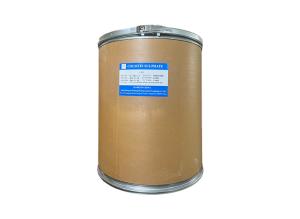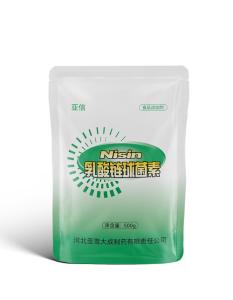

|
- Createtime: 2023-03-06
- Updatetime: 2023-03-10
Trade name: Colistin sulfate
Molecular formula: C52H98N16O13·2H2SO4
CAS number: 1264-72-8
Characteristics
Colistin sulfate is an alkaline polypeptide antibiotic that exhibits strong antibacterial activity against Gram-negative bacteria such as aerobic bacteria, Escherichia coli, Haemophilus influenzae, Klebsiella pneumoniae, Pseudomonas aeruginosa, Salmonella typhi, Shigella dysenteriae, and other Gram-negative bacteria. It is mainly used to treat intestinal infections caused by Gram-negative bacteria.
Compliance
Colistin sulfate complies with the standards of the Chinese Veterinary Pharmacopoeia, European Pharmacopoeia (EP), United States Pharmacopoeia (USP), and other relevant regulations.
Storage
Store in a dry, cool, and dark place, and keep the container tightly closed to protect from light.
Colistin Sulphate Introduction
Colistin sulfate is a type of antibiotic that belongs to the polymyxin family. Its generic name is colistin sulphate, and its chemical formula is C52H98N16O13·2H2SO4, with a CAS number of 1264-72-8. It is a basic polypeptide antibiotic that is effective against a variety of Gram-negative bacteria, including E. coli, Klebsiella pneumoniae, Pseudomonas aeruginosa, and Acinetobacter baumannii.
The mechanism of action of colistin sulfate is through its ability to disrupt the integrity of the bacterial cell membrane. It binds to the lipopolysaccharide (LPS) layer of the bacterial outer membrane, leading to a loss of membrane potential and subsequent leakage of intracellular components. This results in cell death and bacterial lysis. Because of its unique mechanism of action, colistin sulfate is often used as a last resort antibiotic in the treatment of multidrug-resistant Gram-negative bacterial infections.
Colistin sulfate is mainly used to treat infections caused by multidrug-resistant Gram-negative bacteria, particularly those in the gastrointestinal tract. These infections include pneumonia, sepsis, urinary tract infections, and wound infections. Colistin sulfate can be administered orally or intravenously, depending on the severity of the infection and the patient's condition. The dosage and duration of treatment should be determined by a qualified medical professional based on the specific needs of the patient.
The safety and efficacy of colistin sulfate have been extensively studied and confirmed. The drug is listed in the Chinese Pharmacopoeia, European Pharmacopoeia, and United States Pharmacopoeia, and has been approved by regulatory authorities such as the US FDA and the European Medicines Agency. However, the use of colistin sulfate should be closely monitored due to the potential for toxicity, particularly in patients with impaired renal function. Renal function should be assessed before and during treatment with colistin sulfate, and dosage adjustments should be made accordingly.
In addition to its therapeutic use, colistin sulfate has also been used as a feed additive in livestock to promote growth and prevent bacterial infections. However, this practice has been discouraged in many countries due to concerns about the development of antibiotic resistance and the potential transfer of resistance genes to humans.
In conclusion, colistin sulfate is a valuable antibiotic that is effective against multidrug-resistant Gram-negative bacteria. Its use should be closely monitored to ensure patient safety and prevent the development of antibiotic resistance. As with all antibiotics, it should be used judiciously and only under the guidance of a qualified medical professional.
-
2023-03-13
How is Nisin produced?
Nisin is a naturally occurring antimicrobial peptide that is produced by certain strains of bacteria, particularly Lactococcus lactis. The process of nisin production involves the ...
MORE -
2023-03-14
How is ε-Polylysine hydrochloride produced?
ε-Polylysine hydrochloride, also known as ε-PL or Poly(ε-lysine), is a natural biopolymer composed of ε-lysine monomers. ε-PL is known for its antimicrobial properties and has...
MORE
- Tel:+8618231198596
- Whatsapp:18231198596
- Chat With Skype







